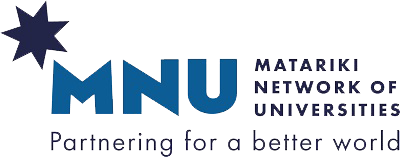Programme Strands
Programme Strands
Programme Strands guide the ongoing development of the MNU Global Citizenship Programme and its activities, expressing the ethos and direction of the programme. They have been developed through discussion and dialogue by the MNU board, and faculty and students at different levels within MNU partner universities. As the MNU Global Citizenship Programme develops, additional strands are likely to be added.
Empowering Learners Strand
We see students as key stakeholders of the future, and as valuable co-creators of academic environments within universities. This strand aims to explore and develop initiatives, methods and structures in which students experience being actively involved in shaping their own education – and future – and through these empowering experiences, acquire the tools and mind-sets to be able to act as global citizens. We recognise the importance of a balance between staff- and student-led processes, and see students and staff working in partnership as key to the development of the Matariki Global Citizenship Programme.
Both faculty and students from MNU partner universities participated in the Global Citizenship Programme’s first workshop in April 2016, in which they explored critical notions of global citizenship, shared work and experiences, and collaboratively proposed structures and content for the emerging Global Citizenship Programme. This student-faculty model was a success, and will continue to be an important part of the programme’s activities.
Community Engagement Strand
The word ‘Matariki’ holds important meaning for the MNU. A Māori word (Otago University in New Zealand is an MNU partner), it has come to mean a celebration of the unique place in which we reside, and the giving of respect for the land on which we live. A place-based and community-centred approach for the Matariki Network in educating global citizens is needed. This strand calls for MNU initiatives that enable students, through multi/transdisciplinary work-modes, to become community-engaged, socially and environmentally aware learners, as a central part of their higher education.
Community engagement is likely to include both the academic community and its campus as well as the communities surrounding the university. Building up relationships with communities and community based organisations and institutions can help us to better address and understand local, ‘real-life’ issues. We believe that bringing people from various cultural and social backgrounds together can help to broaden their perspectives and open up new collaborations and a sense of togetherness that can provide a basis for the demands of any discussion or action on global citizenship.
Creating Spaces for Dialogue Strand
The world is complex and increasingly interconnected, yet public discourse is often characterised by simplifying and polarised narratives which create groups of ‘us’ and ‘them’. The world hosts a plurality and diversity of values, voices, perspectives and traditions. Yet the ‘global’ in the dominant discourses of global citizenship often represents particular values rather than any universal human interest. We see engagement with complex realities and different perspectives as essential for fostering global citizens.
This strand articulates a commitment to creating spaces – both virtual and physical, with functioning routines and practices – for dialogue, debate and collaboration across disciplinary, cultural and political boundaries; and for critical engagement with the local/global dimensions of our own assumptions and the roles of our universities in ‘partnering for a better world’. We recognise that our universities may lack such spaces, and need to investigate and experiment with the principles, structures, methods and routines needed to create them. The Matariki Network should seek collaborative possibilities, both within and between member universities, around creating such dialogue and spaces.
